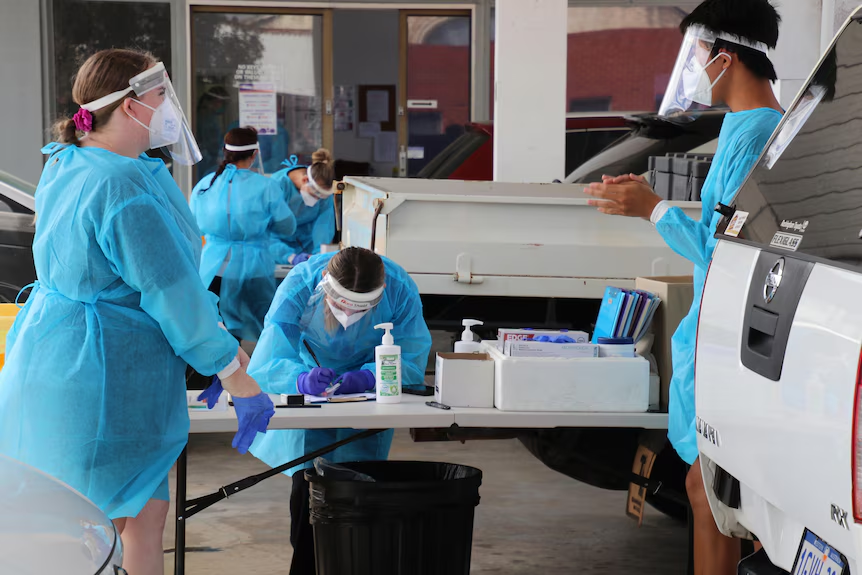As the holiday season kicks off, Western Australia is experiencing a surge in Covid-19 cases, prompting authorities to urge residents to stay at home if they’re unwell.
The state’s health department has announced that a new, updated booster vaccine is now available to all residents, which is designed to target the latest subvariants of the virus.
The Alarming Rise in Hospitalisations
Recent surveillance data, including wastewater analysis and reported cases and hospitalisations, paints a worrying picture for the state’s frontline healthcare workers. The average number of people currently hospitalised has risen to 75 per day, raising concerns about the healthcare system’s capacity to cope with the surge.

New Booster Vaccine: What You Need to Know
The newly available booster vaccine, Pfizer JN.1, has been formulated to address a different subvariant than previous versions. According to Dr. Paul Armstrong, the new vaccine is expected to provide increased protection against the Omicron subvariants currently circulating in WA.
Who’s at Greater Risk?
Dr. Armstrong emphasized that some people are at greater risk of severe illness from the virus. “Covid-19 can cause life-threatening complications, particularly among older adults and people with underlying medical conditions,” he said. With Christmas just around the corner, the risk of infection spreading more easily is heightened.
How to Protect Yourself and Others
So, what can you do to protect yourself and those around you from Covid-19?
- Stay home if you’re unwell
- Cover coughs and sneezes
- Wash or sanitise your hands often
- Consider wearing a mask in crowded indoor or high-risk settings
- Get a booster vaccination
Who Should Get the Booster Vaccine?
According to WA Health’s guidelines, the booster vaccine is recommended for:
- Adults aged 75 and over who have completed their primary vaccination course and haven’t received a dose in the past six months
- Adults aged 65-74, as well as those who are severely immunocompromised, who should get a booster every 12 months, with the option of an additional dose every six months based on individual health needs
- All other adults and children aged 5-17 with severe immunocompromise, who should get a booster annually
The Risk of Long Covid
WA Health is also urging anyone with cold or flu-like symptoms to stay home, as even mild symptoms can lead to long Covid, a condition that can last for months or even years. Recent studies have highlighted the impact of repeat infections on long Covid, suggesting that the virus persists in the body, particularly in the brain, for years after the initial infection.
By taking these precautions and getting vaccinated, you can help protect yourself and those around you from the surging Covid-19 cases in Western Australia. Stay safe, and happy holidays!

